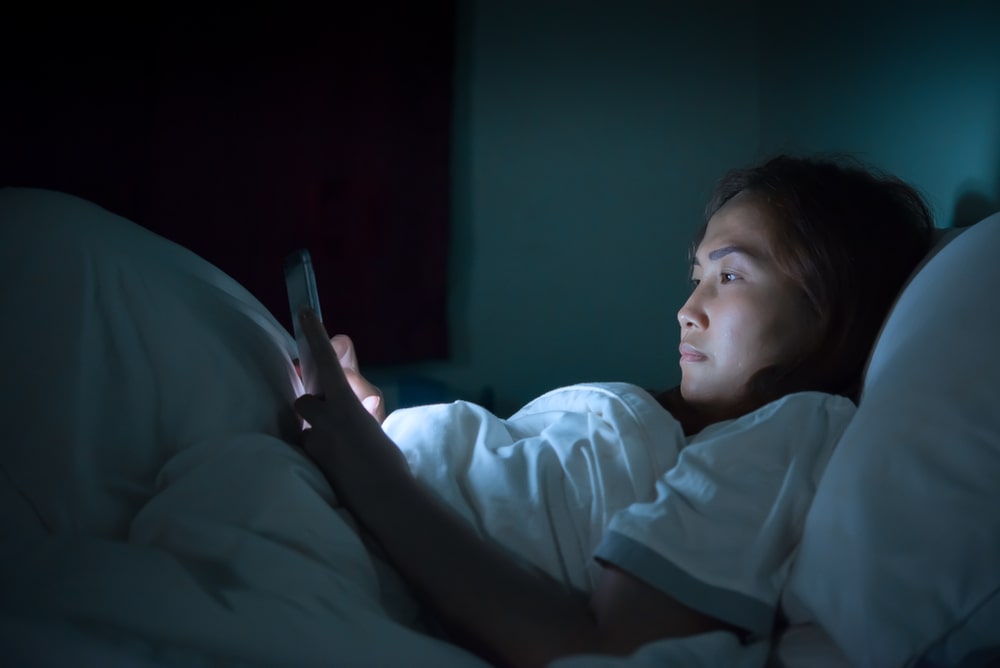
Blue Light: What It Does to Our Skin, and What We Can Do About It
Shedding Light on Blue Light: How Your Screen May be Affecting Your Skin
Blue Light: As the world of skincare has evolved into a truly sophisticated field, we’ve built a greater understanding of aging and how to prevent it. And experts have learned that of all aging factors, sun exposure is major.
But as we’re spending more time indoors, now may be the time to learn about another light source that’s damaging your skin.
And you’re looking at it right now: your screen!
Read on to learn how it may be affecting your skin, how concerned you ought to be, and what you can do to prevent photodamage.
What Is Blue Light, and Why Is It Different?
It’s said that 90% of signs of aging are caused by sun exposure. But what about the light from our screens? Surely it’s not as damaging as the sun, right?
Well, that’s potentially a “yes and no” question.
A range of different-colored light rays makes up all visible light. Among visible light rays, it holds high energy levels, akin to certain skin-damaging UV rays.
And while it isn’t necessarily as high-energy as UV rays, research shows that it’s much more penetrative. Trials suggest too much exposure to screens like phones, computers, or tablets may harm eyes due to frequency and intensity.
Can Blue Light Really Damage My Skin?
Research ongoing, but consensus suggests blue light might indeed affect skin aging.
According to one commonly-cited peer-review from the Journal of Investigative Dermatology, it was indicated that blue light exposure caused an increase in swelling and pigmentation, while a 2018 study from the Journal of Biomedical Physics & Engineering concluded that blue light exposure can cause oxidative stress, especially amongst those with a tendency to browse the web at night.
What’s more, is that increased exposure of blue light can also be confusing to the skin. This is because blue light is known to promote wakefulness: when it hits our skin or retinas, our bodies take it as a signal that its daytime. Staring at screens late may disrupt circadian rhythm, hindering cell turnover and causing skin issues.
How To Protect The Skin From Blue Light
So how can we prevent our screens from ruining our skin?
Here are a few strategies.
1. Go Into Night Shift Mode
While many individuals have reported success with trendy blue light blocking glasses, there’s a far simpler solution: most computers and phones now have a built-in “night shift” mode, which turns down the blue light levels in your screen’s display.
To minimize the exposure and oxidative stress, cut back on nighttime screen time.
2. Antioxidants
As mentioned before, one of the factors that make light rays so damaging is that they can cause oxidative stress, and while reducing exposure is going to be the most effective means of prevention, antioxidants are a great addition to anyone’s skincare routine, as they’re known to help lower oxidative stress.
Some of our favorite antioxidant-rich ingredients include sprouted red clover, rosehip extract, and vitamin E.
3. Don’t Forget Your Sunscreen
Blue light protection's rising popularity hints at a surge in specialized skincare products. Needless to say, many individuals are concerned about blue light!
But while blue light shows potential for creating sun damage, it pales in comparison to the side effects you can experience from overexposure to the sun.
Conclusion
For this reason, it’s crucial that you use a form of sunscreen every day! Preferably a mineral-based sunscreen, which is a lot safer for our oceans than chemical sunscreens.
No matter how closely you follow the advice before this, it’ll mean nothing if you’re not protecting yourself from the sun.






